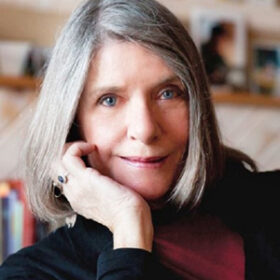-

Freedom to Read … and to Write
First, Nicole Sullivan, owner of The Bookies bookstore in Denver, explains why she’s thankful for the freedom to read and explains why we need to resist weakening our democracy’s commitment to that foundational ideal: https://sullivanic.substack.com/p/thankful-for-the-freedom-to-read Secondly, novelist and educator Janet Burroway details her travails in updating the fourth edition of her durable textbook, Imaginative Writing, to the new fifth edition. Her article is aptly titled “Slouching Toward Sensitivity,” a nod to both Yeats and Joan Didion.Read More
-

Adventures in Reading 2022
PART ONE: DISTRACTION AND ENCHANTMENT 2022 was unkind to my habit of reading lots of books. Partly my paid work was to blame: growing pains (which I am too old for) of the professional kind. Then there was the several weeks I wasted on Thomas Mann‘s Doctor Faustus, which I had to abandon. What drudgery! What a distraction! I’d read and admired a number of Mann’s short stories, but Doctor Faustus struck me as all posturing, a ponderous performance with no point in sight, almost every moment of it arriving via second- or third-hand reports about Mann’s fictional, Schoenbergian composer, Adrian Leverkühn.Read More
-

The Condition of Vision: Tom Hennen’s Collected and New Poems
Darkness Sticks to Everything: Collected and New Poems by Tom Hennen My rating: 5 of 5 stars Some French writer when I was a boy said that the desert went into the heart of the Jews in their wanderings and made them what they are, I cannot remember by what argument he proved them even yet the indestructible children of earth, but it may well be that the elements have their children.Read More
-

Something of a Ramble…
Seed Magazine has this illuminating conversation between linguist/anti-war activist Noam Chomsky and evolutionary biologist Robert Trivers. Their overarching topic is “deceit,” but the subtopics they touch on (“groupthink,” “maintaining credibility,” and “denial”) are powerful contributing factors to the human ability—exacerbated by bureaucracies and media—to deceive ourselves and others. In the discussion of “groupthink,” Trivers makes an observation that may explain why political poetry is so difficult to write well.Read More
-

Enterprise
Beatrice Saint Forte, the main character in Edwidge Danticat‘s story “The Bridal Seamstress” (a chapter in her novel-in-stories The Dew Breaker), explains: “When any of my girls puts on one of my dresses, everyone at the wedding is going to be looking at it. When they’re singing ‘Here comes the bride,’ they’re really singing “Here comes the dress.’” This is true of too many poems.Read More
-

On Imaginal Space
[This expands on my previous post, which it may help to read first.] I use the word “imaginal” to mean something far beyond the Webster’s definition, “of or relating to imagination, images, or imagery.” I mean it in the sense defined by the great scholar of Islamic mysticism Henry Corbin: …alam al-mithal, the world of the Image, mundus imaginalis: a world as ontologically real as the world of the senses and the world of the intellect, a world that requires a faculty of perception belonging to it, a faculty that is a cognitive function, a noetic value, as fully real…Read More
-

“Mr. Yeats, Meet Mr. Freud” (but not Mr. Ashbery)
The works of Yeats and Freud are now available online thanks to the expiration of their copyrights. (Thanks to Jilly Dybka’s Poetry Hut Blog for this one.) Thanks to the greed-driven expansion of copyright protections future readers will have to wait a good deal longer to access the complete works of Ashbery (for example) online and for free.Read More
-

Linda Hogan’s Happy Challenge
Linda Hogan is one of my favorite poets. She’s best known to the wider world as a novelist and essayist, but at heart she’s a poet, and her new poetry collection, Rounding the Human Corners, is a profound gift, especially for someone like me, who considers himself a humanist—although it’s a term that fits less like a glove than a too-small suit. I especially feel the constrictions of my “philosophy that usually rejects supernaturalism and stresses an individual’s dignity and worth and capacity for self-realization through reason” [Webster’s] when I read a poet like Linda Hogan.Read More

 Joseph Hutchison, Colorado Poet Laureate 2014-2019, has published 20 collections of poems and edited or co-edited three poetry anthologies. He currently directs two master’s-level programs for University College at the University of Denver: Professional Creative Writing and Arts & Culture Management. Joe lives with his wife, Melody Madonna, in the mountains southwest of Denver, Colorado, the city where he was born.
Joseph Hutchison, Colorado Poet Laureate 2014-2019, has published 20 collections of poems and edited or co-edited three poetry anthologies. He currently directs two master’s-level programs for University College at the University of Denver: Professional Creative Writing and Arts & Culture Management. Joe lives with his wife, Melody Madonna, in the mountains southwest of Denver, Colorado, the city where he was born. 









